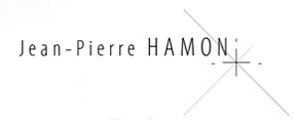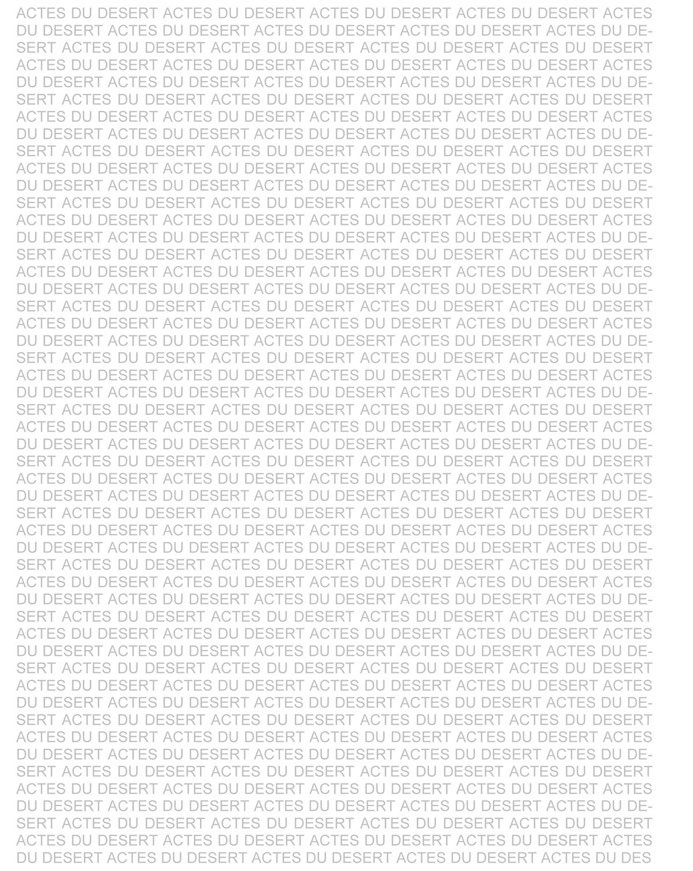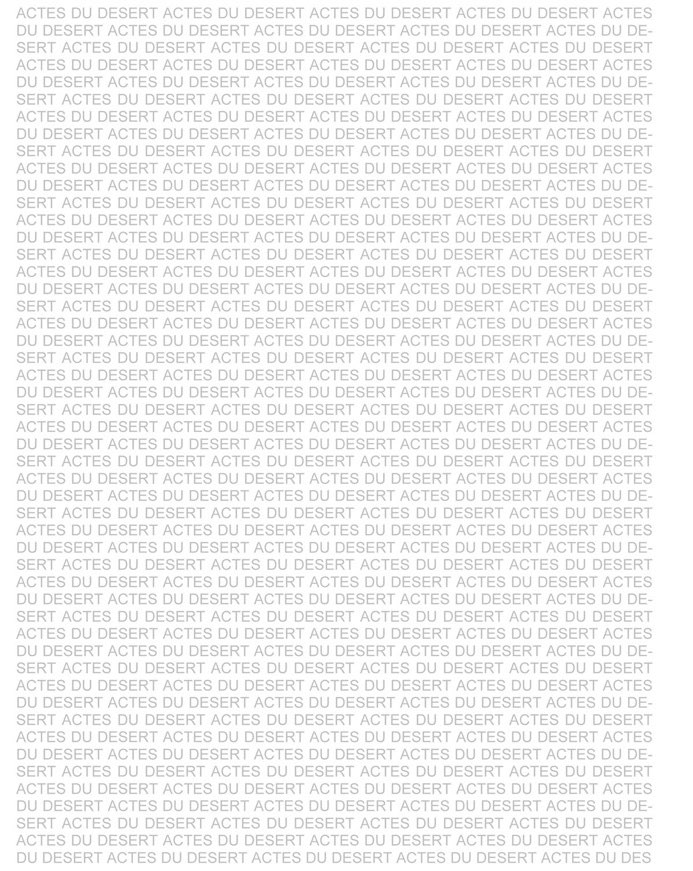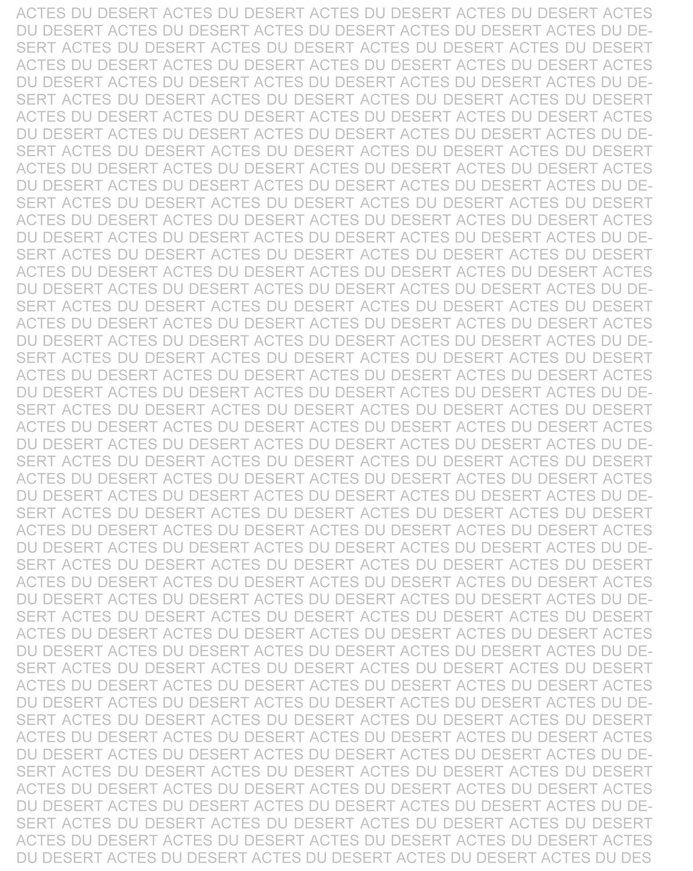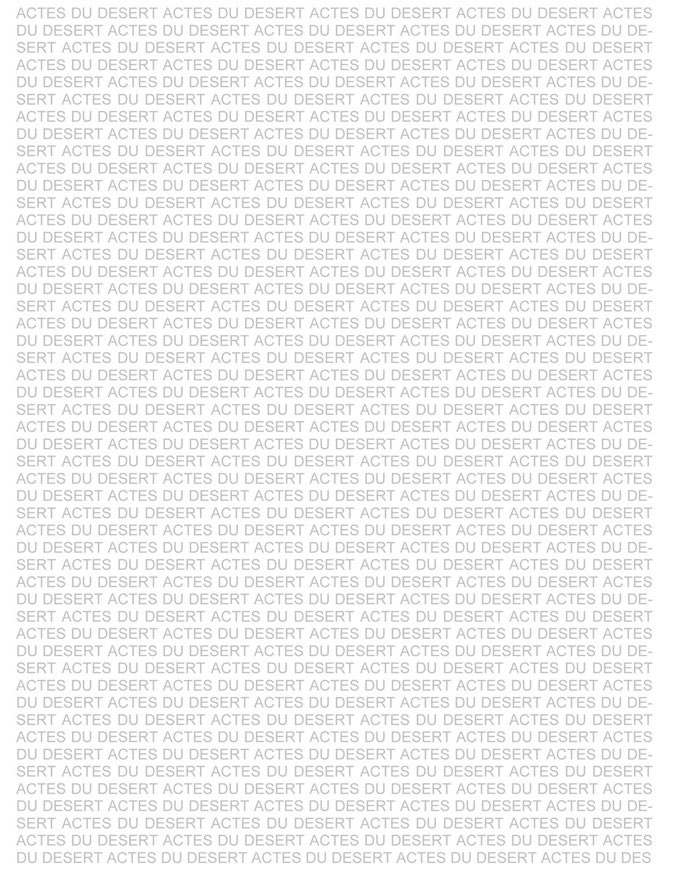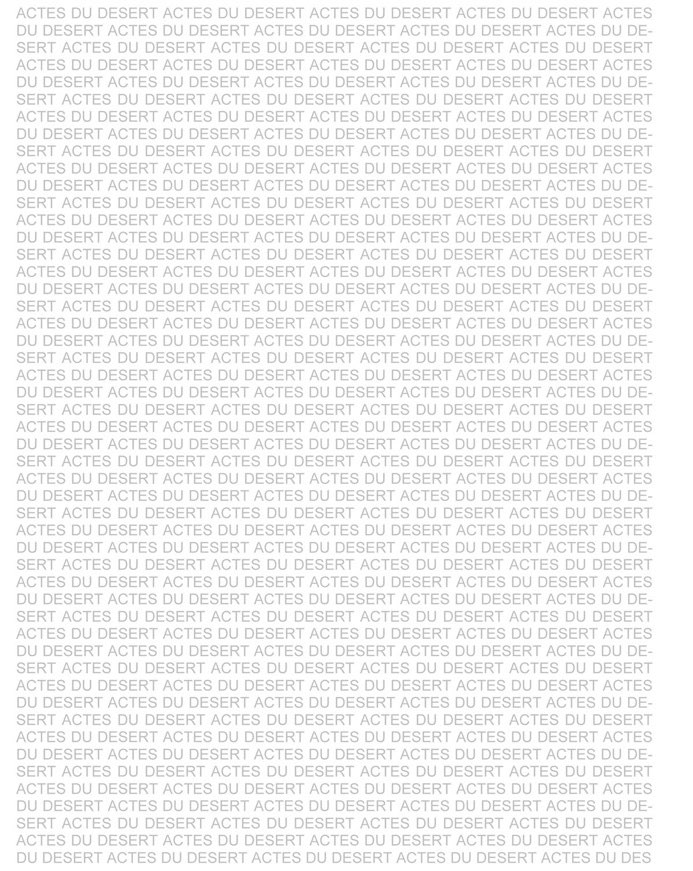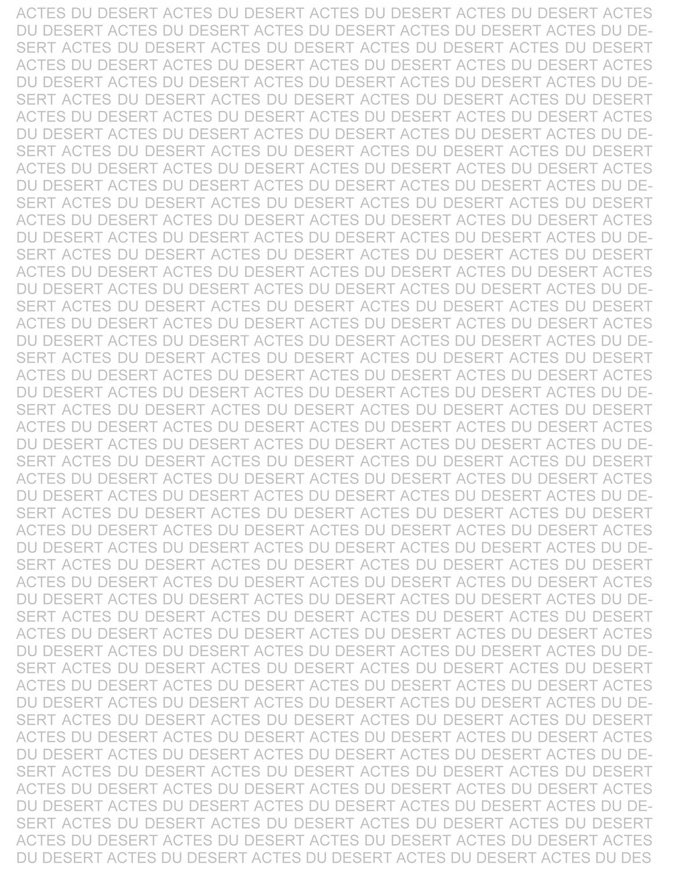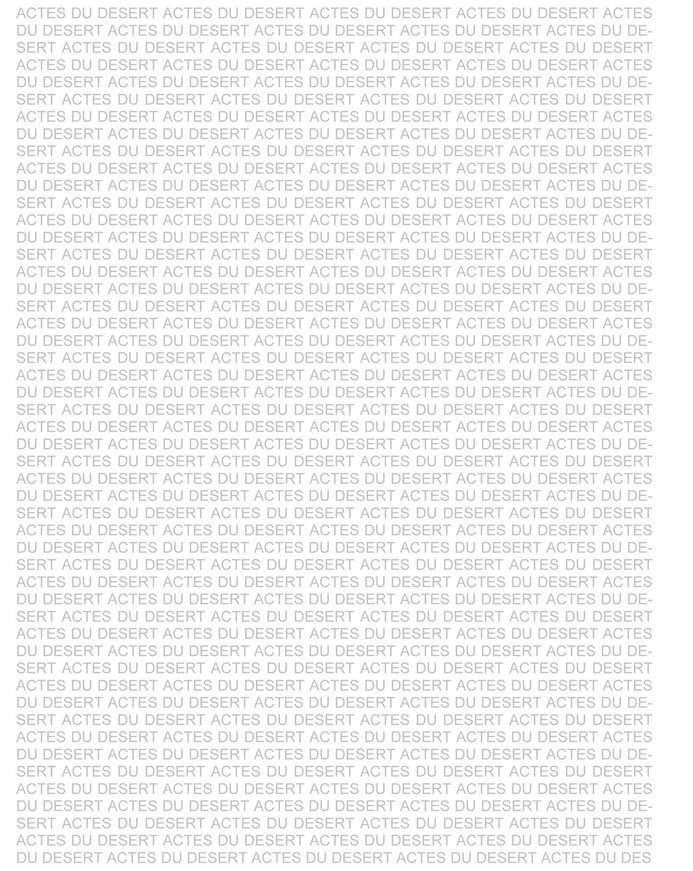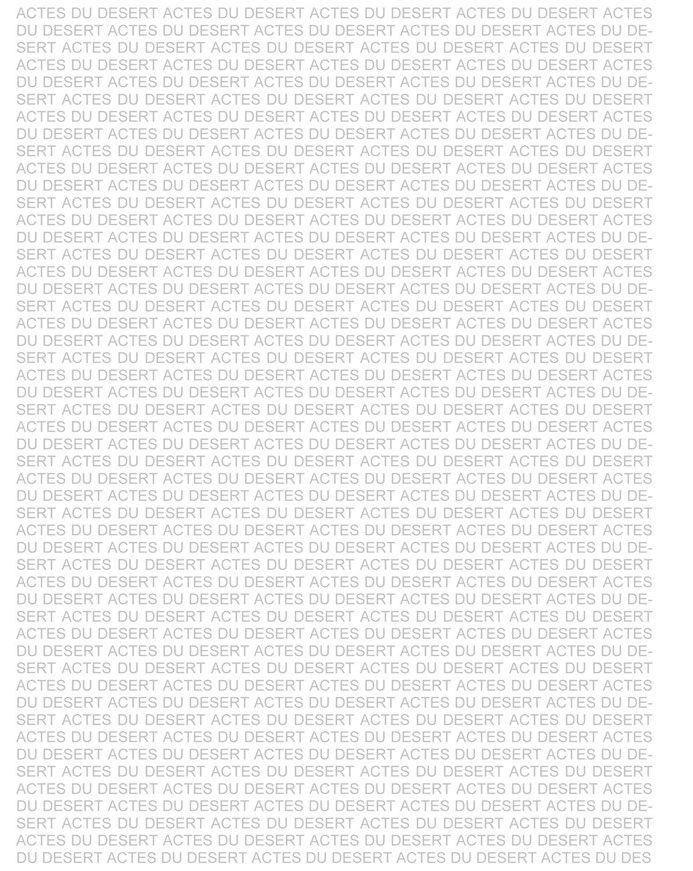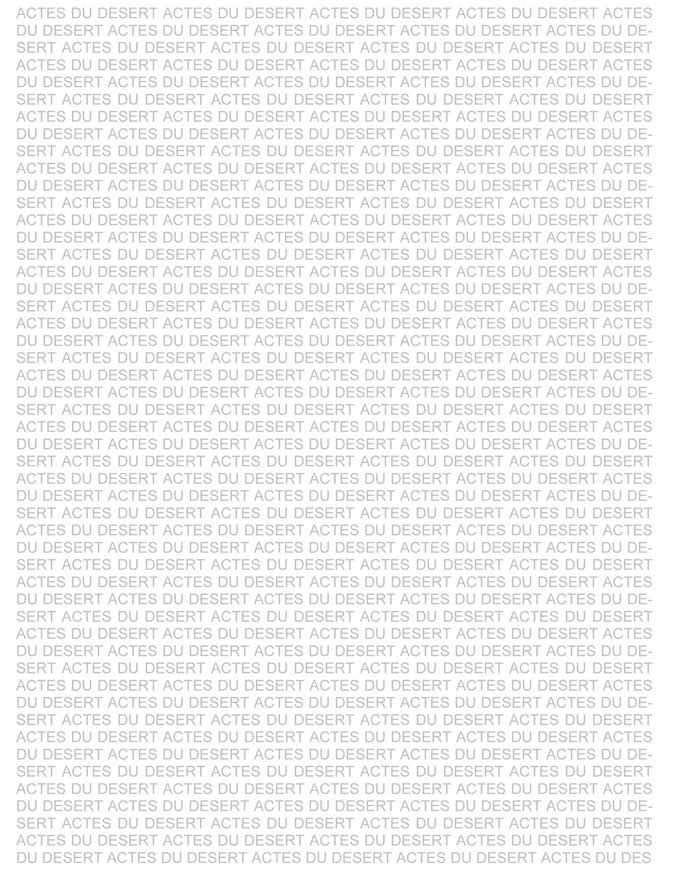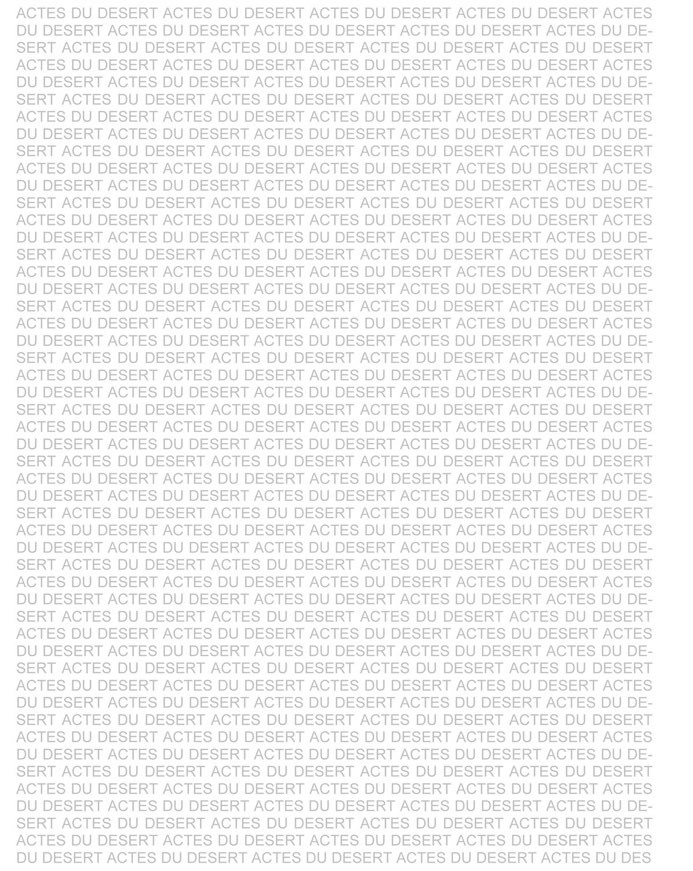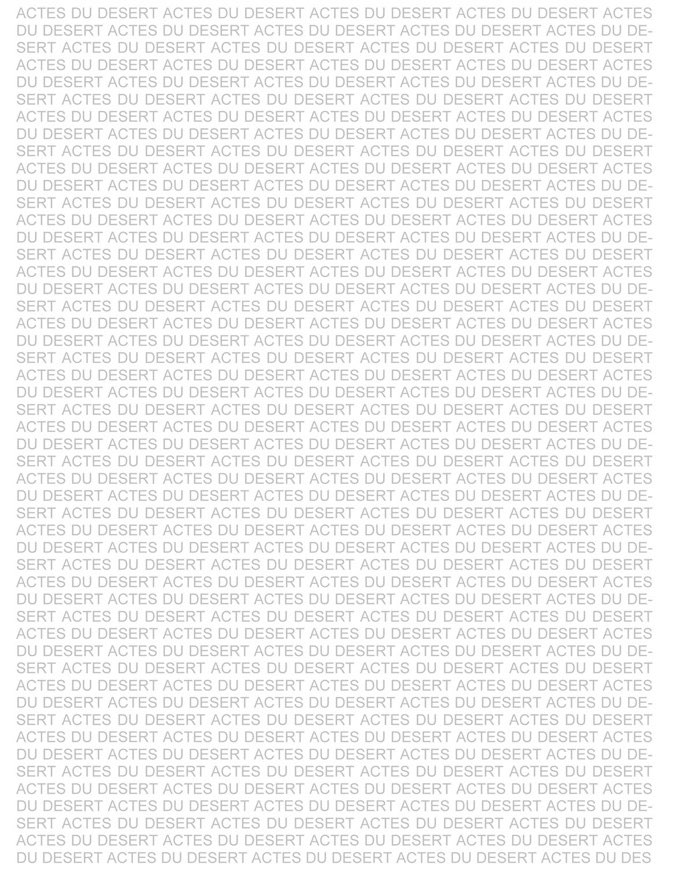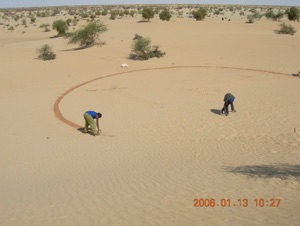DESERT’S ACTS
by
Jean-Pierre HAMON
[English translation by Norbert VUIDEPOT]
I arrived in BAMAKO one day later than originally planned. GAËTAN and TOSH had arrived before, since I had to wait over eight hours for the following flight departing from Paris airport: the last seven seats, including mine, had been set aside for an undocumented Malian immigrant by a sad deportation requisition of the Ministry of the Interior.
That setback allowed me to travel from PARIS to BAMAKO via DAKAR, and to fly over the exceptional geological changes of the MAURITANIAN desert and the strange and fascinating locking up of the city of DAKAR.
A warm and characteristic smell, which I had scented on my first journey, filled my lungs as I got out of the aircraft on the BAMAKO track.
My X-OR host was waiting for me at the exit of the airport as agreed, with a sign that read: "ACTES DU DESERT".
« Les Athéniens /auraient dit à Socrate/ que la pensée était subversive, que le vent de la pensée était un orage qui balaie tous les signes bien établis permettant aux hommes de s’orienter dans le monde, qu’il apporte le désordre dans les cités et perturbe les citoyens, particulièrement les jeunes. » /…/ « Si « une vie sans examen ne vaut pas d’être vécue », alors la pensée accompagne la vie lorsqu’elle se tourne vers des concepts tels que la justice, le bonheur, la tempérance, le plaisir, dénominations de choses invisibles que le langage met à notre disposition pour exprimer la signification de tout ce qui peut nous arriver dans la vie et se produire tandis que nous vivons. »
Hanna Arendt, Considérations morales, Conférence du 30 octobre 1970 [Texte remanié pour sa publication sous le titre Thinking and Moral Considerations : A Lecture, 1971].
We will opt here for the short way of expression, certainly slower than lightning, but equally diffused and compelling.
We will not linger on any descriptions that never end and require a certain talent proper to a literature that is foreign to us. Some descriptions will be made necessary to redefine our action, our journey. Others will come to our rescue to replace the weight of an impossible or too heavy analysis.
However, our intention is neither light, nor pretentious, because its meaning is to reproduce a delicate or magical snapshot.
The desert wind is set in a perfectly silent spirit.
The wind sings silence. It makes us silent. What music is this?
We are at the mercy of the tracks that we forget walking. They drown in the origin of the world and with them we drown in a fold of time - simple phenomenology of the universe.
The fold of time expresses the refusal of space in an impossible off-screen of itself.
Although it is the original space, there is no eternity of the desert, because everything there is empty and uneventful. These incessant come and go in the desert space, the tracks we leave, give food to vacuum, and the vacuum is the essence of all these polymorphic variations.
Beings do not get tired of coming and going to and between distinct things given in space by their specific and independent existence. It is the great feast of life. Being there, in an undefined space : that is feasting. So many ants will have got along with our delicacies.
We zigzag. We hesitate.
I.
I know that you're hurt
That being here hurts you
And that evil is the best shared thing in the world
I know all that
I cannot even do anything for you
For what holds you
And nails you in this place
Whoever you are
Wherever you’re standing
But is it really the sharing of that
Between you and the world
That does not respond to the matter
Between you and others?
II.
Let us take back from the matter what belongs to you
Let us resume what you have perhaps misunderstood
But correct me if I'm wrong
The object is real
All to you, and I see it as trompe l'oeil
It holds you closer sempervirens
Doubt does not dwell there
Tell me
If this has always held you at the closest
And even held you closer to others
Is there actually only the world of the thing
Or still better no more thing than world
As one’s share?
Tell me
If this world is large enough at last for others
But not enough to be yours
(Too wide maybe)
Name it to me
And if the world and the purpose held you in the end
Even though you broke away without any damage
What would happen to you?
The reflective change of our will to act, by setting up its foothold in an undefined space, commits us to orchestrate the desirable continuity of our life in support of a deliberate or automatic action that would lead us from a very relative uneasiness to its absence of location.
The expression of this continuity [the place of its absence], with all it entails as pleasure or displeasure, claims to be beneficial.
We keep and don’t keep existing simultaneously at the very circumference of a circle [that meets the challenge of the time in an undefined space]. There is an unnamed challenge, without any beginning or end. Still better, if our reason for existing was elsewhere and everywhere else, where we could still stand, and it would always bring us back to the same anchorage of our state.
But what indecision is this about? What anchorage?
Being there, yet paradoxically never being there, allowed us to say [denouncing it]: "Here lies the point."
How many myriads of efforts repeated in this way through countless swirls of windswept epochs and migrations have helped save one grain of sand. What if this was nothing but an echo without return? Yet the cost of this effort will be neither higher nor lower than what a tiny plot of oasis would bring us.
The reward goes largely beyond the thought.
Here lies the point. Here lies the grain.
Facing oneself, the thought of the world exceeds the thought of others, without others. That's all we can do together, separately. We have been absent from the world through hard internalizing the thought of others and, despite repeated but unsuccessful effort, swept sharing this world in reward. This is our internal migration. Every thought produces a cast of the die, looking at itself in an hourglass.
It is appropriate to appeal to the strength of the wind to name each rippling parcel of ground the music of silence.
Space becomes more precise as the hourglass empties and fills.
Inside a circle henceforth limited, or at the dividing line between an inner and an external landscape, we have drawn a guiding line for a story of no importance.
Without a shadow of sadness, more strengthened in its permissive action under a sun that shines in such an intense light, our writing remains silent while our language fades. Our language is at stake like a sonorous emptiness.
Backwards :
III.
Tar open to infinity
Dust-sweeping road
Purple tar with blue reflections
Edged with smooth ochre-brown strips
Then, around, straw yellow vegetal delicacy
Paler than yellow
Dotted with dry tufts of a Corot or Veronese green
Where so many ghost-like baobabs stand.
Tar open to infinity
You draw your calls to travel
On a dust-swept road.
Such is the future of our geographical journey, like the resolution or not of an economic problem, for one single desire has been following its liberating course for several centuries of roaming. Then the hunt for traces begins in a setting that fills and determines us.
Just like people hungry for their history within a constituted assembly [form of aestheticism spreading from self-hatred to contempt for the other], we like to wear ourselves out in an indistinct territory, just as real and which confirms fiction.
Oblivion is our dominant passion.
IV.
What is it that you curse
That you tell me you know
If I am here or there, yes
You, who know so well
About evil and good, naked
About little good, so bad learnt
What is all that you want from me
Of a confession oh never so little
And that, then that, and shoo
What you want that I don’t know
Facing you, here just for that
No, never that again.
All around a circle marked out by a sandy line with a colour other than local, about sixty leaves were equally displayed and sparingly covered with sand, thus offering to the view an isolation system operated by geometric colours with mondrianesque accents [blue, red, yellow, gray, black and white].
Who's there? Tell me who you are! What are you looking for here and particularly in this circle?
(It was enough for a dancer to move so that his dynamism transformed our signs).
I walk in our footsteps, yes, our footsteps, the moment they show a perfect appearance of transformation of the ground and of things inside it, in the invocation of words remained silent to date and, to the extent the union with the cosmos implies an abandonment of any individual strategy.
In this more precise place I tread an uncountable multitude of sand grains, as though any move here below allowed me to check step by step whether the magnetic force emanating from traces [and joint figures] was affecting a set of facts and secularised movements in a more and more mysterious way.
In short, coming and going in the middle of this area, one way or another, comes to live a form of openness, the way a guide would orient me from a point [to one or several guidelines] to the root of things.
V.
Tell me if I have to go into myself
I’ll wait
Tell me as well what I have to do in there
I get lost by time (despite the godsend) doing nothing
I am waiting for all that to stop
Small twaddle, small emotions in there
Conversation corners around an ante-room
Little corners of separation
Which treat reparation, the other
Parliamentary instinct, yes, prompt this instant
Changing of the Guard who thinks high de omni re
And then, res, res, suitable res that lives for better or worse
Wattle language for maid
I tell you, I’m waiting.
Once the desert wind had blown over our signs, we migrated to other places.
Of this unfulfilled dialogue between roots and opening, what remains for us to discover more exactly?
The tracks that lead to the true desert are strewn with corpses; only ours lack.
Sunshine juice sand-sprinkled.
© Copyright Jean-Pierre HAMON 2006
